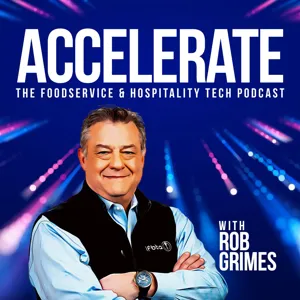Expectations of Tech Within Hospitality | TechSpectations

In this week's episode, host Rob Grimes puts the spotlight on TechSpectations, or rather, the expectations of tech within hospitality. Not about airing grievances or frustrations about technology but rather a constructive dialogue aimed at dissecting observations and insights shared with Rob by industry insiders.
From investing in cutting-edge technology to grappling with execution challenges, the conversation draws from recent industry developments and personal anecdotes, the podcast presents a comprehensive view of how technology intertwines with every aspect of the hospitality experience.
The emphasis is on the importance of technology that serves a purpose beyond its novelty, the discussion delves into the significance of meeting the diverse expectations within hospitality operations of consumers, employees, management, and shareholders. Whether it's about optimizing operations, enhancing guest interactions, or staying ahead of evolving consumer preferences, TechSpectations offers actionable insights and strategies to navigate the ever-changing landscape of hospitality tech.
With a keen focus on bridging the gap between tech innovation and real-world application, TechSpectations sets the stage for informed discussions and actionable takeaways in the fast-paced world of hospitality tech. To hear more of Robâs thoughts, and start your own conversation on TechSpectations, tune in to this episode of Accelerate.
From investing in cutting-edge technology to grappling with execution challenges, the conversation draws from recent industry developments and personal anecdotes, the podcast presents a comprehensive view of how technology intertwines with every aspect of the hospitality experience.
The emphasis is on the importance of technology that serves a purpose beyond its novelty, the discussion delves into the significance of meeting the diverse expectations within hospitality operations of consumers, employees, management, and shareholders. Whether it's about optimizing operations, enhancing guest interactions, or staying ahead of evolving consumer preferences, TechSpectations offers actionable insights and strategies to navigate the ever-changing landscape of hospitality tech.
With a keen focus on bridging the gap between tech innovation and real-world application, TechSpectations sets the stage for informed discussions and actionable takeaways in the fast-paced world of hospitality tech. To hear more of Robâs thoughts, and start your own conversation on TechSpectations, tune in to this episode of Accelerate.
